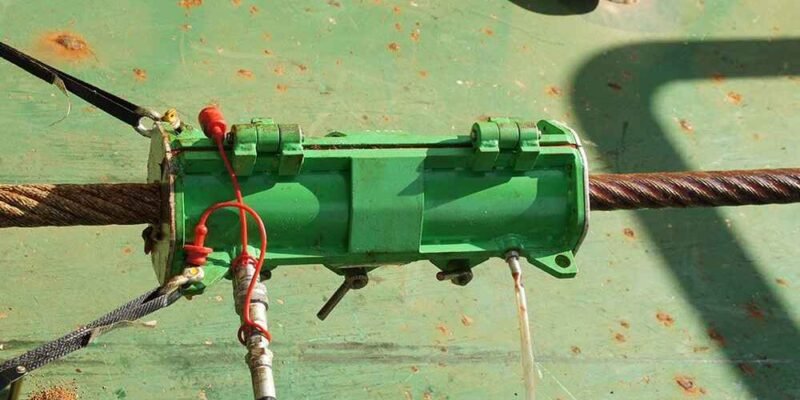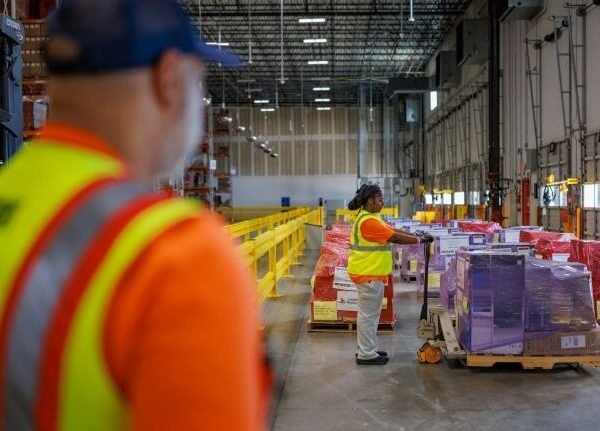Are you operating heavy lifting equipment? Proper lubrication of wire ropes is essential for performance and safety. This article explores why suitable wire rope lubricants prevent wear, protect cable integrity, and extend the working life of wire ropes. Experts like Viper WRL say wire ropes are crucial for lifting, pulling, and connecting cranes, elevators, mining shafts, and more. Let’s dive into how proper lubricants reduce friction, inhibit corrosion, and maintain the smooth functionality of these critical cables.
Preventing Friction Damage
Unlubricated wire ropes suffer abrasion damage internally from metal-on-metal friction as they bend and move during equipment operation. This gradually erodes the rope’s core over time. Wire rope lubricants provide a protective film between the individual wires and strands, minimizing the friction wear and particle buildup that degrades the rope. This preserves the cable’s strength and reduces the likelihood of dangerous failures.
Reducing Operating Temperatures
Friction within an unlubricated wire rope generates high heat levels as the equipment runs. This wears the rope down over time in a process called heat degradation. Wire lubricants effectively disperse heat buildup by reducing friction and keeping the rope operating at safer temperatures, avoiding gradual thermal damage to the cable.
Inhibiting Corrosion
Many working environments contain moisture or corrosive chemicals that will attack and corrode unprotected wire ropes. The lubricant coatings shield against water, acids, and other corroding elements that degrade the rope. This protection preserves the cable’s integrity and strength even when exposed to wet, salty, or acidic conditions.
Maintaining Flexibility
For a wire rope to bend smoothly around wheels and pulleys, the individual wires within it need to slide and travel relative to each other with minimal friction. Lubricants keep the wires moving freely over one another as the rope flexes. This maintains cable suppleness and flexibility, reducing fatigue cracks and wire breakage over continual flexing cycles.
Extending Service Life
Adequate wire rope lubrication reduces abrasive wear, thermal degradation, corrosion, and fatigue cracking, enabling the cables to meet or exceed their designed lifespans before requiring replacement. This saves on preventable replacement costs. Wire lubrication is inexpensive relative to the enormous costs of re-cabling cranes or elevators.
Ensuring Smooth Operation
Minimizing internal friction and wear through lubrication keeps wire rope operation smooth and efficient as you run your lifting equipment. Poor lubrication leads to jerky, uneven motion—well-lubricated ropes function as intended without binding, jumping, or hitching as they operate.
Simplifying Maintenance
Well-lubricated wire ropes also require less intensive ongoing cleaning and maintenance over their working lives. Lubricants minimize grit buildup and wear particle accumulation, allowing for easier periodic cable inspection and servicing. This makes your maintenance processes smoother.
Enhancing Safety
Poorly lubricated ropes experience accelerated internal wear and fatigue. This makes them prone to unexpected snapping or detachment from the equipment, which poses a significant safety hazard for operators. Proper lubrication protects cable integrity and significantly reduces the risk of potentially deadly rope failure.
Choosing the Right Lubricant
While lubrication is essential, not just any lubricant will suffice. Wire rope lubricants are specially formulated to cling tenaciously to the cable while remaining pliable. Common motor oils lack the required adhesion and harden over time. Ensure you use lubricants explicitly designed for wire rope applications.
Following Manufacturer Guidance
Reputable wire rope manufacturers provide lubrication specifications and schedules necessary for proper maintenance. This includes lubricant types, frequency of application, and reapplication intervals. Following the manufacturer’s lubrication guidance helps ensure you meet the rope’s designed working life.
Training Maintenance Staff
It is important to have maintenance staff trained in proper wire rope lubricant selection, application methods, visual inspection, and periodic reapplication. Trained technicians help ensure lubrication happens effectively and on schedule, reducing safety risks and preventing unnecessary repairs or downtime.
Addressing Environmental Factors
Certain harsh working conditions, such as offshore marine environments or dusty mining settings, may require more frequent lubrication or heavy-duty lubricants. When formulating the lubrication plan, consider each rope application and environment. It is wise to get input from riggers or ropemakers.
Conclusion
Proper lubrication protects critical cable assets, maximizing operational safety, smooth performance, and return on investment. Don’t cut corners—adequate wire rope lubrication saves money and lives.
Do Read: Designing the Perfect Home Theater: Essential Audio Considerations for Unmatched Sound Quality













